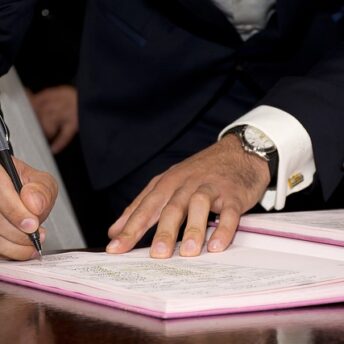Converting a freehold property into leasehold estates presents a potential strategy for property investors and developers. While it’s not a straightforward process, understanding the benefits and careful consideration of potential drawbacks are crucial before embarking on this path. In this article, Freehold To Leasehold Strategy, we take a look at the process and mechanism involved.
Free Initial Telephone Discussion
For a free initial discussion with a member of our New Enquiries Team, get in touch with us today. We are experienced in dealing with all the legal aspects of converting a freehold property to leasehold, and once instructed, we will review your situation and discuss the options open to you in a clear and approachable manner. Early expert legal assistance can help ensure you are on the best possible footing from the start and also avoid the stress of dealing with these issues on your own. Simply call us on 0345 901 0445 or click here to make a free enquiry and a member of the team will get back to you.
Understanding Freehold and Leasehold Property:
- Freehold ownership: Grants the owner the most extensive property rights in England and Wales. It allows complete ownership of the land and any buildings on it, with no time limit on the ownership period.
- Leasehold ownership: Grants ownership for a fixed period, often ranging from decades to centuries, with the land ultimately belonging to the freeholder. Leaseholders pay rent to the freeholder throughout the lease term.
Potential Advantages of Converting Freehold to Leasehold:
- Increased Profitability: By dividing a freehold property into multiple leasehold units, investors can potentially:
– Generate rental income from each individual leasehold unit.
– Sell individual leasehold units separately, potentially fetching a higher total price than selling the entire freehold property as a single entity.
- Simplified Management: Creating leasehold estates can simplify management responsibilities compared to managing a single large property. Leaseholders are responsible for maintaining their individual units, potentially reducing the burden on the freeholder.
- Sharing Costs: Certain common area expenses, such as building maintenance and insurance, can be shared amongst leaseholders, reducing the financial burden on the freeholder.
Important Considerations Before Conversion:
- Legal complexities: Converting freehold to leasehold involves complex legal processes, requiring expertise in drafting leases, complying with Land Registry requirements, and managing various legal obligations.
- Tax implications: Both the freeholder and potential leaseholders may face tax implications. Seeking professional tax advice is crucial to understanding and mitigating potential tax liabilities.
- Market conditions: The success of the strategy hinges on securing suitable tenants or buyers for the individual leasehold units. Careful market research and pricing strategies are essential.
- Management responsibilities: Even with shared responsibilities, the freeholder retains certain management obligations for common areas and overall building integrity.
- Potential disputes: Lease agreements should be drafted meticulously to address potential disputes regarding maintenance, repairs, and shared responsibilities.
Seeking Professional Guidance:
Due to the complexities involved, seeking professional guidance from a qualified solicitor specializing in property law is crucial. They can:
- Advise on the feasibility and potential benefits/risks of the conversion, considering your specific circumstances and property type.
- Handle the legal processes involved in drafting leases, liaising with the Land Registry, and ensuring compliance with regulations.
- Advise on tax implications and assist in minimizing potential tax liabilities.
- Negotiate lease terms with potential tenants or buyers, ensuring fair and balanced agreements.
Conclusion:
The freehold to leasehold strategy can present potential benefits for property investors and developers seeking to increase profitability and simplify management. However, careful consideration of the legal complexities, tax implications, market conditions, and associated responsibilities is crucial before embarking on this path.
Consulting with a qualified solicitor throughout the process is highly recommended to navigate the legal complexities, protect your interests, and ensure a successful and compliant transition. Remember, this article provides general information and does not constitute legal advice. Always consult with a qualified solicitor for personalized and professional advice regarding your specific situation and property goals.
How we can help
We have a proven track record of helping clients deal with the legalities of freehold to leasehold conversion. We will guide you through the process and ensure all checks are carried out swiftly and efficiently and we firmly believe that with the right solicitors by your side, the entire process will seem more manageable and far less daunting.
How to Contact Our Commercial Property Solicitors
It is important for you to be well informed about the issues and possible implications of converting a freehold to leasehold. However, expert legal support is crucial in terms of ensuring a positive outcome to your case.
To speak to our Commercial Property solicitors today, simply call us on 0345 901 0445, or click here to make a free enquiry. We are well known across the country and can assist wherever you are based. We also have offices based in Cheshire and London.
Disclaimer: This article provides general information only and does not constitute legal advice on any individual circumstances.





